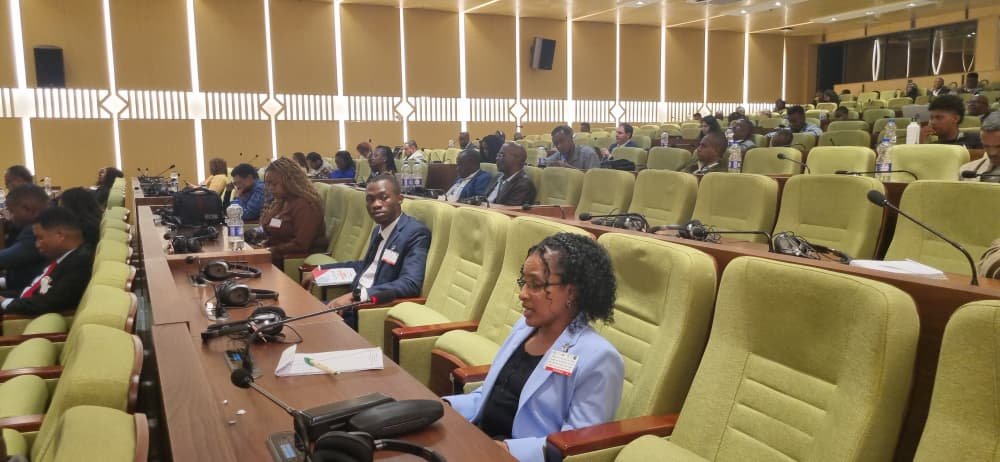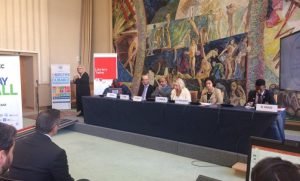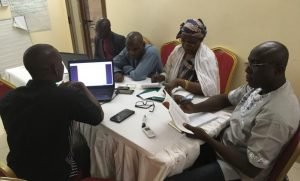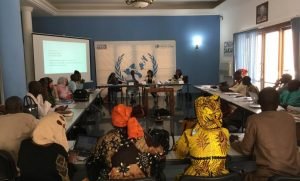Effective Approaches for Tackling Climate Risk in Africa
Ahead of the Second Africa Climate Summit (ACS2), the African Disability Forum (ADF) participated in one of the pre-summits of the 13th Conference on Climate Change and Development in Africa (CCDA-XIII), held from 5 to 7 September 2025. On this occasion, ADF’s Director for Advocacy and Communication, Ms. Shitaye Astawes, spoke on the panel Effective Approaches for Tackling Climate Risk in Africa as follows:
I am delighted and honored to speak at this panel on the occasion of the 13th Conference on Climate Change and Development in Africa.
In line to this panel and its overarching focus on effective approach for tackling climate risk in Africa, I will speak from the perspective of people with disabilities in Africa. Then, I think one of the approaches can be:
Embrace diversity, intersectionality and inclusiveness
While leaving the technical details for experts in the field, embracing diversity, intersectionality and inclusiveness as an approach to tackle climate risk is important.
Increasing heat in Sub-Saharan Africa counted in as one of the leading causes for an alarming onset of skin cancer on people with Albinism while skin care treatments and sun screen creams for daily use and without subsidies from states are very much expensive for most people in this spectrum.
Climate change impacts and its accompanying risks threatened and collapses several small-scale businesses at grass root levels and that is where you find women with disabilities, mothers of children with disabilities and youth with disabilities. The situation is worse in most African countries as social protection scheme is thin across the region.
The March 2023 Cyclone Freddy in Malawi and the case in Mozambique did not discriminate persons with disabilities or others with intersectional identities and vulnerable communities. Those are the ones who disproportionately impacted with such disasters and mainly due to lack of inclusive response. The existing practices on climate finance, the context of loss and damage as well as adaptation mechanisms do not adequately address persons with disabilities. Established systems on early warning and evacuation are highly discriminatory as they failed to be accessible to all. Most of all the continent suffered from absence of disability dis-aggregated data. And we need action in those areas.
However, and beyond the United Nations Convention on the Rights of Persons with Disabilities (UNCRPD), the Africa continent now have an AU legal instrument as African Disability Protocol (ADP) which to date secured 17 ratification and which clearly stipulated the essence of disability inclusion in Climate Change Actions in its Article 12.
Secondly,we need to apply the principle of stakeholders’ engagement at all levels.
The land mark principle, in UNCRPD, is meaningful engagement and equal participation.
Persons with disabilities including those who are underrepresented marginalized from climate actions while they are highly vulnerable to climate change risks and impacts. They need to be engaged so for their voice to be heard and to be included in matters that affected their lives.
Thirdly, building on climate smart, resilient and sustainable economy is Key:
The foundation for effectively tackling climate change impacts and risks is a strong national to local economy in all its forms.
Considering local economy, building on resilient and inclusive economy and keeping the effort to translate Sustainable Development Goals (SDGs) into practice is essential. I do not go to mention the goals as all the 17 Goals relates directly to economy. Is that not fantastic?
It is also good to Nurture indigenous knowledge
As Dr. Charles this morning also mentioned to be the “Continent of Solution” we must scale up indigenous knowledge. For instance, in this very land where we are having the conference and where we experienced painful landslides, the Ethiopian Konso people’s sophisticated, long-standing dry stone terracing system, which is a highly effective method for soil conservation and water management in that particular environment needs to be taken as best practice and nurtured as indigenous knowledge. This relates with the importance of scaling up and transforming indigenous knowledge.
As we pledge for more presence and participation in such platforms as well as for equity and equality, we need the understanding of climate and development experts and practitioners in changing the existing charity and medical based narrative to Human Rights Based Approach.
The reality, according to the World Health Organization report, is 1 in 10 people could have one or more forms of impairment and then disability.
Allow me to end by sharing the motto “Nothing About us without climate and development experts and practitioners all of us”. I thank you all!






